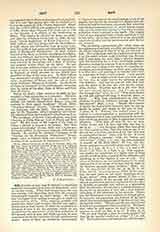

Gilbert, NICOLAS-JOSEPH-LAURENT, poet, b. at Fontenoy-le-Chateau, 1751; d. at Paris, November 12, 1780. His parents were poor farmers. He pursued his studies at the College de l’Arc at Dole, where the professor of literature boasted of having made poets of all his pupils except Gilbert. Upon leaving college in 1769 he settled at Nancy and tried to open a public course in literature. In 1772 he competed unsuccessfully for a prize at the French Academy. In 1774 he went to Paris, where Freron won for him the favor of the archbishop. Young and unknown, he had the courage to oppose the triumphant and all-powerful chiefs of the philosophical party. Although there is a little juvenile audacity in the fury of his attacks, the sincerity of his religious convictions cannot be doubted. He died of brain fever caused by a fall from his horse. His enemies reported that he died insane; his partisans claimed that he died in misery at the hospital. Neither report is true. After the accident which caused his death, he was taken to the Hotel-Dieu, but was soon removed to his own house, where he died. The story of his poverty is untrue, for at the time of his death he was drawing three pensions, which constituted for that time a rather large income. Gilbert’s works consist of a Persian novel, “Les families de Darius et d’Eridame” (Paris, 1770), a satire in prose, “Le carnaval des auteurs” (Paris, 1773), a few odes, and satires. Three pieces, one ode and two satires, have given him a lasting reputation: the “Ode imitee de plusieurs psaumes” (1788), usually known under the title of “Adieux a la vie”, struck the first personal and melancholy notes which were the characteristic of the Romantic school; in the satires “Le dix-huitieme siecle” (1775) and “Mon apologie” (1778) there is a force, movement, and eloquence which one does not find elsewhere in the poetry of that time. He vigorously opposes the manners of the time and castigates the philosophers and the Academy. His words are those of a man who writes with freedom, emotion, and sincerity, though his style is not always equal to the thought.
LOUIS N. DELAMARRE

